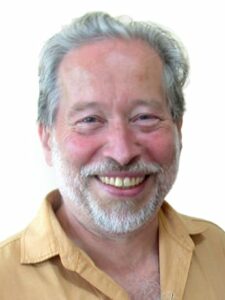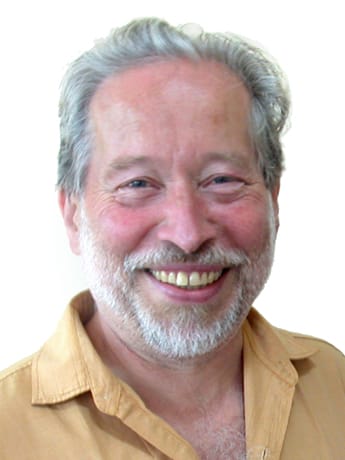
Misha Norland
Source: School of Homeopathy
Misha Norland (13 June 1943 – 27 November 2021) was an influential British homeopath who started practice and teaching in London, and later moved to Devon, where he founded the School of Homeopathy.
Misha Norland was a Fellow and a founding member of The Society of Homeopaths and was the first editor of its journal. A practitioner for over 40 years, he was Head of Homeopathic Research at the first UK homeopathic college. Internationally respected for his teaching and practice skills, he influenced and taught many of the world’s leading homeopaths. As well as establishing the School of Homeopathy in the UK in 1981 (the longest running School in the UK). He developed the distance learning course established in 1987 and also helped develop partner School’s in New York (no longer running), Tokyo and Hong Kong & China. In 2024 he was awarded the Maesimund B. Panos MD Homeopathy Educator Award by the National Centre of Homeopathy in the USA in recognition for his impact on homeopathy in North America.
He made many contributions to journals, conferences and new materia medica, proving over thirty new remedies. He was the author of four books.
Norland was a student of homeopaths John DaMonte and Thomas Lackenby Maughan.
Misha Norland’s colleagues in the Society of Homeopaths included Elizabeth Danciger, Peter Chappell, Robert Davidson, Martin Miles and Sarah Richardson.
Misha Norland was born in 1943 of central European parents (both artists) who emigrated to the UK in 1939. His father was Jewish, from Bohemia, and his mother was from Brandenburg, Germany.
Misha lived with his family in the Mumbles on the Gower, and would recall remembering the night sky illuminated as Swansea was under siege.
As soon as the war ended, Misha’s parents purchased a run-down house in the London suburb of Hampstead. They also changed their name from Neuschul (literally New-Schule or school) to Norland.
…. he spent almost a year as a laboratory assistant at the Medical Research Council’s establishment annexed to Hammersmith Hospital. Misha greatly enjoyed the detective work and the spirit of discovery amongst scientists who, free from financial constraints, could pursue ‘pure’ empirical enquiry.
However, Misha was shocked and dismayed at the methods used by most of the other scientists in the name of cancer research and he remained glad that the team he was working with had no part in it.
The sub-basement of the research building, a tower block of some 30 stories, was dedicated to irradiation. It boasted a massive X-ray unit, a small cyclotron particle accelerator, a Van De Graaf high voltage source, radio-active Cobalt and other means of producing rays and sub-atomic particles. The top story of the building housed a zoo. Here ill-fated creatures such as albino rats and mice, rabbits, monkeys and pigs awaited a macabre fate. The approach to cancer research at that time was to induce growths in an animal using carcinogens. At various stages of cancerous infiltration the animals were taken to the sub-basement and subjected to one or another type of ray or accelerated particle. The object being to ascertain which mode of ‘treatment’ would be ‘effective’.
This level of debasement of the sanctity of life by those very scientists whose enquiry was to uncover its secrets, horrified and disillusioned Misha.
After gaining 6 ‘A’ level GCE’s in various subjects and after almost a year as a laboratory assistant and more than another year of foreign travel, it was time for Misha to settle down. He decided that it was also a time for a major career turn-around. So, he chose film making, working up through film editing in documentaries, to script writing, cinematography, TV commercials, feature film editing and directing. Then, after a stint in Hollywood, he got married and had a son. Returning to London, he fell back into the rut of his bread-and-butter work: the financial security afforded by directing TV commercials. But he became disillusioned and he grew to hate prostituting his art, as he saw it.
Misha began to search for ‘higher truths’ – and his search led him to homeopathy.
Misha always felt that he owed a debt of deepest gratitude to his beloved teacher, John Damonte. John entered Misha’s life in 1970 when he prayed for direction. Misha said that John gave freely and generously of his heart and from the font of his wisdom. Misha found his anchor in the philosophy of healing and homeopathy and his love of psychology and the hermetic wisdom teachings was reawakened. John put the teachings of the classical Greek philosophers into a modern context of healing. His knowledge embraced astrology, theosophy, Jung and the teachings of the four elements, as well as the chakra system of the orient and its connection with the endocrine system in our bodies. These teachings help to integrate our understanding of spirit, mind, emotions and body.
In 1975, Misha’s homeopathic practice took off and he became the barefoot homeopath of the North London hippy community. He gained much experience in the treatment of children’s epidemic diseases and acute prescribing. He saw homeopathy bring about miraculous cures and also long-term healing in chronic cases and learnt that an acute is often best treated (in that the patient does not relapse) by a constitutional remedy. Homeopathic philosophy was revealed to Misha by practical experience. People with serious conditions would often undertake long journeys to consult him and, because of this, follow-ups were infrequent. Misha learnt that the similimum, over time, can provide the impulse which can change the direction of peoples’ lives, setting their sails into the wind of self-forgetting (for what is more selfish than being taken over by one’s own suffering) and thus they become able to receive and give more love and express more creativity in their lives.
In 1978, alongside other students of the older homeopaths (such as Thomas Maughan), Misha co- founded The Society of Homeopaths, dedicated to practice according to Hahnemannian precepts; education; information dissemination and creating and maintaining a register. Misha was the first editor of the new Society’s journal, The Homeopath.
Misha began formal teaching at the College of Homeopathy in 1979, although he had been running fortnightly study groups from his home for some years prior to this.
Misha remarried in 1980. His beloved Brigitte was his soul mate and friend. Their four sons, together with his first born from his first marriage (to Lucia Wiese) completed Misha’s family.
In 1981, Misha and his family moved to Devonshire and founded The School of Homeopathy. David Mundy began teaching in 1982, and Janet Snowdon began in 1984. Murray Feldman was a frequent teacher, while Jeremy Sherr, Joanna Daly and David Curtin also contributed.
In 1984, Misha established himself at Yondercott House, where the family and the School lived side by side. In 2005, his eldest son Mani Norland became involved in the School and joined the School Core team in 2006. Then, in 2009, Mani took over as principal and moved the School out of the family home to larger premises at Hawkwood College, near Stroud in the Cotswolds, where it is still based. Misha was proud that the current faculty including his son and many former students who cooperate in creating and maintaining the friendly atmosphere and the educational ethos of the School as well as its cutting-edge culture of discovery and invention. Misha continued to teach at Hawkwood into his 70’s.
In 2017, Misha stepped down from teaching on the School of Homeopathy attendance course, but continued to be involved with many School projects. Working on articles, books, provings and movie lectures and delivery of ‘Moments with Misha’ a discussions group just for School of Homeopathy students, conducted via Zoom. He also maintained contacts with educators across the world through a regular teaching group.
In 2019, Misha was proud to see another of his son’s Luke Norland join the School teaching faculty and then, in 2020, the School Core team.
In 2021, Misha and his eldest son Mani embarked on an ambitions filming project setting up a studio in his home and filming new movie lectures to accompany every module of the attendance and home study programme.
In Nov 2021 Misha passed away peaceful at night in his sleep. His legacy lives on.
Select Publications:
- Signatures, Miasms, AIDS (2003)
- The Four Elements (2007)
- Get Well Soon: A Guide To Homeopathic First Aid (2010)
- A Celebration of Provings (2021)
Of Interest:
Mani Norland BA(Hons), DSH, PCH, RSHom, eldest son of Misha Norland, is also an homeopath, and is the Principal of the School of Homeopathy and Managing Director of The School of Health, a business that manages home study courses and books. Mani Norland is a founding member of the Homeopathy Course Providers Forum, and a founding member of 4Homeopathy. He sat on Events Panel for the Society of Homeopaths and was on the organising committee for Homeopathic Research Institute for many years.
Luke Norland RSHom, son of Misha Norland, is also an homeopath who teaches at the School of Homeopathy. He practices in South West England and internationally online.
Ernest Neuschul (1895 – 1968), father of Misha Norland, was a Jewish Austro-Hungarian artist who achieved moderate success in Weimar-era Berlin. He was appointed to the Chair of drawing and painting at Berlin’s Charlottenburg Municipal Art School (1931) and Professor of Fine Art at the Berlin Academy of Fine Art (1932). Following the rise of Hitler, Neuschul was dismissed from his position as a “degenerate artist.” In 1938, he left for Prague with his second wife, painter Christl Blell, and son, Tyl Peter, and the following year escaped on the last train which the Nazis allowed out of Czechoslovakia. The family fled to Britain with the help of David Grenfell, Labour MP for Gower, Wales. After a time living in the Mumbles area of Swansea, Neuschul and his family moved to Hampstead, London. There he anglicized his name to Ernest Norland and unsuccessfully attempted to resurrect his career. A retrospective of his career was held posthumously at the Leicester Museum & Art Gallery in 1988. A short video featuring his son, Khalil Norland, accompanied a second exhibition of his work in Leicester in 2014, while his painting “Black Mother” was featured in a National Gallery virtual exhibition titled “Fruits of the Spirit: Art from the Heart,” that ran from 5 December 2022 to 30 April 2023.



Leave A Comment